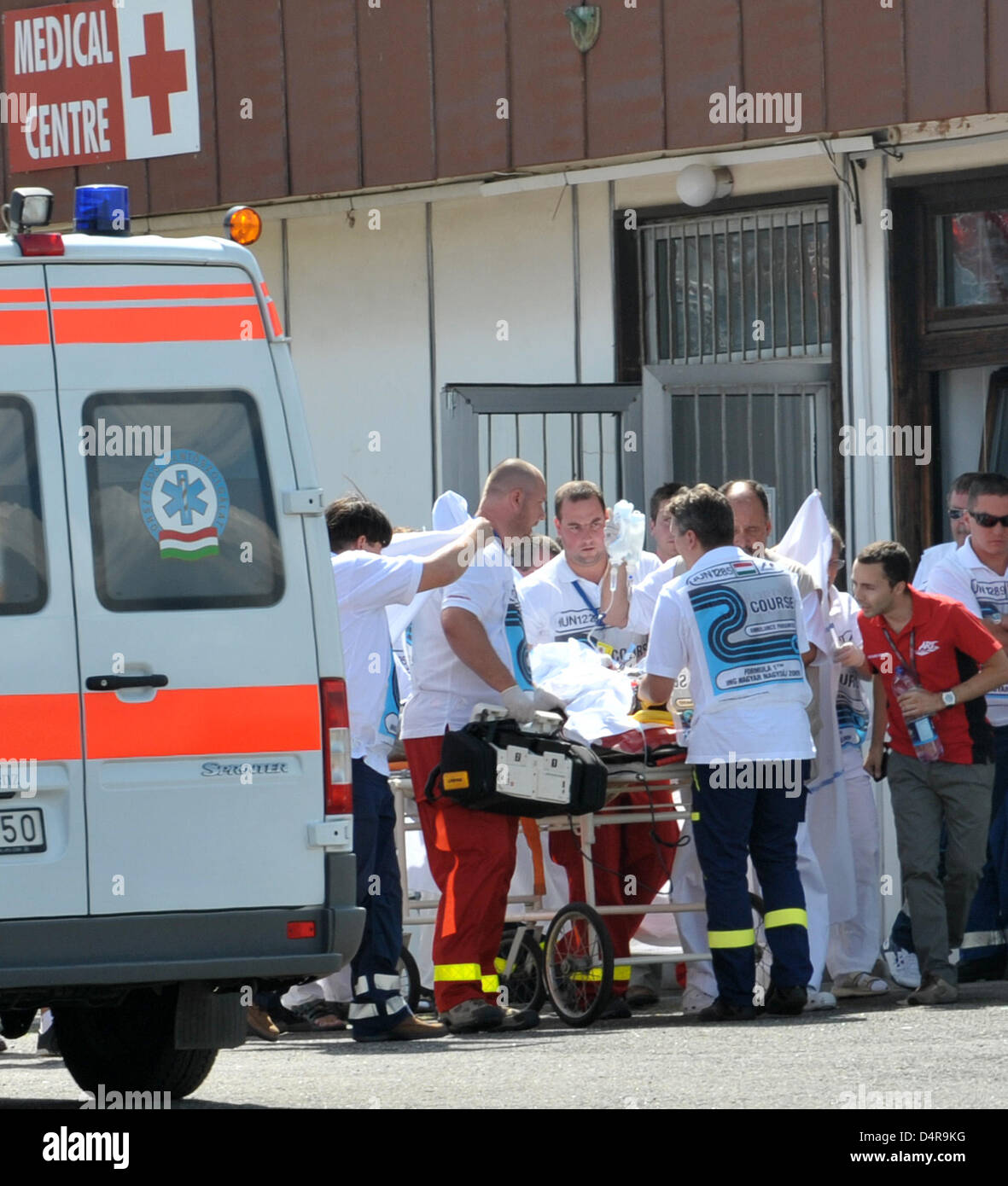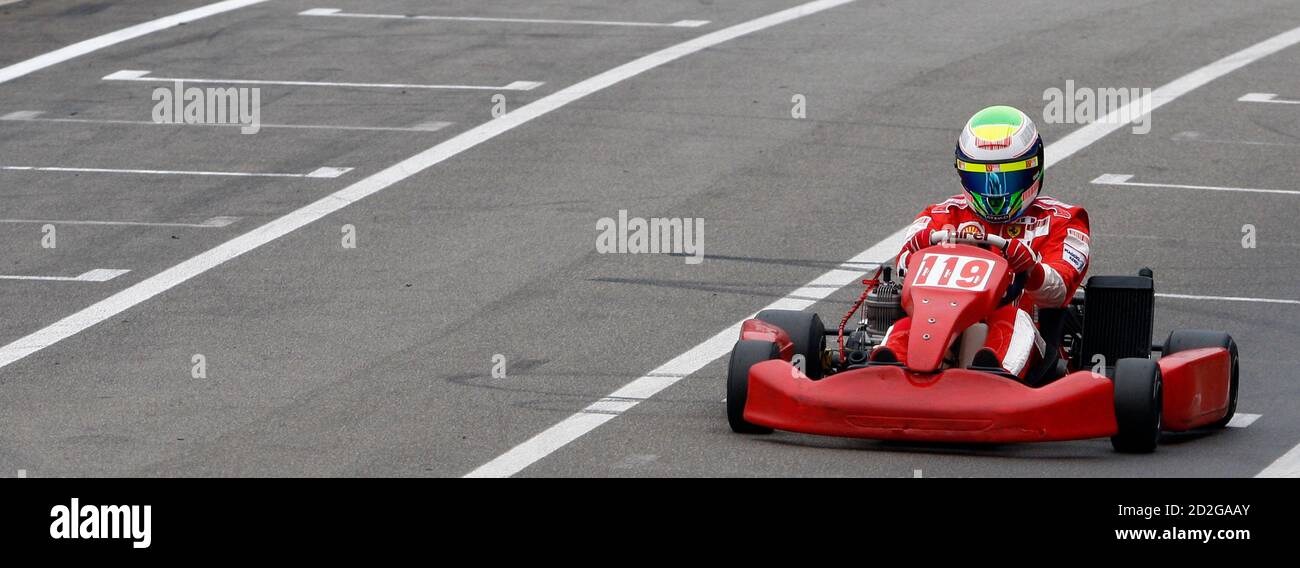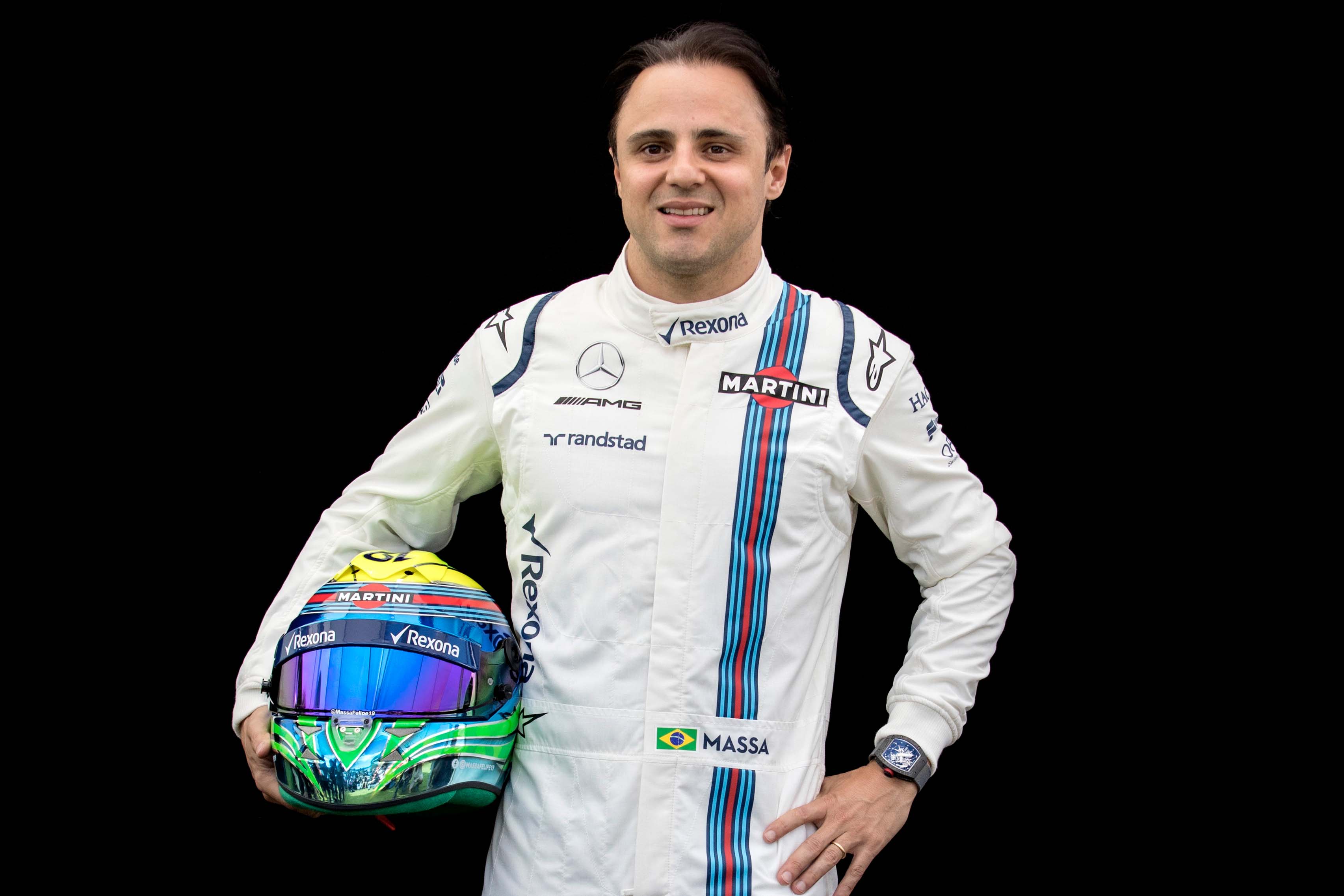Let's talk about one of the most shocking moments in Formula 1 history – Felipe Massa's head injury. This incident not only left fans on the edge of their seats but also sparked a conversation about safety in motorsports. It was one of those moments that will forever be etched in the memory of F1 enthusiasts, and today we're diving deep into the details of what happened, how it impacted Massa's career, and the lessons learned from this terrifying accident.
Back in 2009, the Formula 1 world witnessed an accident that sent shockwaves through the entire racing community. Felipe Massa, a talented Brazilian driver, suffered a severe head injury during the qualifying session of the Hungarian Grand Prix. The incident wasn't just another crash; it was something that could've changed the course of his life forever. But hey, let's not get ahead of ourselves – we'll break it all down for you.
This article isn't just about recounting the accident. We'll explore Massa's career before the incident, the medical details of his injury, and how he managed to make a remarkable recovery. Along the way, we'll sprinkle in some interesting facts, expert opinions, and even a bit of data to give you the full picture. So buckle up, and let's take a trip down memory lane to understand one of the darkest yet most inspiring moments in F1 history.
Table of Contents
Biography: Who is Felipe Massa?
Medical Details: Understanding the Head Injury
Recovery: A Remarkable Comeback
Impact on Career: Life After the Accident
Safety Improvements: Lessons Learned
Fan Reaction: How the World Responded
Long-Term Effects: Did It Affect His Performance?
Media Coverage: The Role of the Press
Legacy: Felipe Massa's Place in F1 History
Biography: Who is Felipe Massa?
Before we dive into the nitty-gritty of the accident, let's take a moment to understand who Felipe Massa is. Born on April 25, 1981, in Sao Paulo, Brazil, Massa is one of the most celebrated drivers in the world of Formula 1. His journey from a young karting enthusiast to a top-tier F1 driver is nothing short of inspiring.
Massa's career began to take off in the late '90s when he started competing in various junior series. His talent was undeniable, and it wasn't long before he caught the eye of the Ferrari team. In 2006, he made the switch to Ferrari, and the rest, as they say, is history. Below is a quick overview of his career highlights:
Felipe Massa's Career Highlights
- 2006: Joins Ferrari and finishes third in the Drivers' Championship
- 2008: Comes agonizingly close to winning the World Championship, losing to Lewis Hamilton by a single point
- 2009: Suffers a severe head injury during the Hungarian Grand Prix
- 2014: Returns to form with a stunning victory at the Austrian Grand Prix
Here's a quick look at his personal details:
| Full Name | Felipe Petrov Massa |
|---|---|
| Birthdate | April 25, 1981 |
| Nationality | Brazilian |
| Teams | Sauber, Ferrari, Williams |
| Championships | None (Closest finish: 2nd place in 2008) |
The Accident: What Happened?
Now, let's get to the heart of the matter – the infamous 2009 Hungarian Grand Prix. During the qualifying session, Massa was running a lap when disaster struck. A suspension spring from Rubens Barrichello's Brawn GP car broke loose and struck Massa's helmet at high speed. The impact was so severe that it sent him crashing into the tire barriers.
The incident was terrifying to watch. Massa's car flipped and came to a halt upside down, leaving everyone in the pit lane holding their breath. Medical teams rushed to the scene, and it quickly became clear that this was no ordinary crash. The spring had pierced through his helmet visor, causing a severe head injury.
Key Details of the Incident
- Date: July 25, 2009
- Location: Hungaroring Circuit, Budapest
- Cause: Flying suspension spring from another car
- Impact: Struck Massa's helmet at over 200 km/h
According to medical experts, the force of the impact was equivalent to being hit by a small projectile traveling at high velocity. It's a miracle that Massa survived, and we'll delve deeper into the medical details in the next section.
Medical Details: Understanding the Head Injury
When Massa was airlifted to the hospital, the initial reports were grim. He had suffered a skull fracture and bleeding in the brain, which required immediate surgery. The doctors performed an emergency procedure to relieve the pressure and remove any fragments of the spring that had penetrated his skull.
According to Dr. Michael Schumacher (no relation to the former F1 driver), who was part of the medical team, the surgery was successful, but the road to recovery would be long and challenging. "Felipe was incredibly lucky," Dr. Schumacher said. "The impact could've been fatal if it had been just a few millimeters off."
Medical Terminology Explained
- Skull Fracture: A break in the bone surrounding the brain
- Intracranial Hemorrhage: Bleeding inside the skull
- Craniotomy: A surgical procedure to remove part of the skull to relieve pressure
Despite the severity of the injury, Massa's youth and fitness played a crucial role in his recovery. The doctors were optimistic, but they knew it would take time for him to regain full strength.
Recovery: A Remarkable Comeback
Fast forward a few months, and Massa was back on the track. His recovery was nothing short of miraculous, and it inspired millions of fans around the world. But how did he manage to bounce back so quickly? Let's break it down.
Massa underwent extensive rehabilitation, which included physical therapy, cognitive exercises, and mental conditioning. His family and the Ferrari team were instrumental in supporting him during this tough period. "I never doubted I'd race again," Massa said in a press conference. "The support from everyone kept me going."
Rehabilitation Highlights
- Physical Therapy: Focused on rebuilding strength and coordination
- Cognitive Exercises: Aimed at improving memory and focus
- Mental Conditioning: Worked with sports psychologists to overcome trauma
By the end of 2009, Massa was back in the cockpit, ready to take on the new season. His determination and resilience were a testament to his character, and it earned him even more respect in the F1 community.
Impact on Career: Life After the Accident
While Massa's recovery was remarkable, the accident did leave a lasting impact on his career. In the years that followed, he struggled to recapture the form that had made him a contender for the World Championship. Many speculated that the head injury might've affected his performance, but Massa remained adamant that it wasn't the case.
"I think the accident changed me as a person, but not as a driver," Massa said in a 2014 interview. "Sure, there were challenges, but I learned to adapt and keep pushing forward."
Post-Accident Achievements
- 2014: Won the Austrian Grand Prix, his first victory since the accident
- 2016: Secured a podium finish at the Spanish Grand Prix
- 2017: Announced his retirement from F1
Although he never won another World Championship, Massa's legacy in F1 is secure. His bravery and perseverance in the face of adversity have earned him a special place in the hearts of fans worldwide.
Safety Improvements: Lessons Learned
One of the most significant outcomes of Massa's accident was the push for improved safety measures in Formula 1. The incident highlighted the vulnerabilities of open-cockpit cars and prompted the FIA to take action. Here are some of the changes that were implemented:
Safety Enhancements
- Introduction of the Halo device in 2018
- Stricter regulations on car components
- Improved helmet designs with enhanced protection
The Halo, a titanium structure mounted above the cockpit, has been credited with saving lives in several high-speed crashes since its introduction. While some critics initially dismissed it as unsightly, the device has proven its worth time and again.
Fan Reaction: How the World Responded
The global F1 community rallied behind Massa during his recovery. Fans from all over the world sent messages of support, and his fellow drivers paid tribute to his bravery. The outpouring of love and encouragement was a testament to Massa's popularity and the impact he had on the sport.
"Seeing the support from fans and colleagues meant a lot to me," Massa recalled. "It gave me the strength to fight harder and come back stronger."
Long-Term Effects: Did It Affect His Performance?
While Massa's accident didn't appear to have any lasting physical effects, some experts believe it might've impacted his mental state. Racing at the highest level requires not just physical prowess but also mental resilience, and the trauma of the incident could've played a role in his later performances.
However, Massa himself has always maintained that the accident didn't hold him back. "I gave it my all every time I stepped into the car," he said. "Maybe the results weren't always there, but I never stopped trying."
Media Coverage: The Role of the Press
The media played a crucial role in keeping the world updated about Massa's condition during the aftermath of the accident. From live updates on social media to in-depth analysis on sports networks, the coverage was extensive and emotional.
"The media did a great job of keeping everyone informed," said former F1 commentator Martin Brundle. "It was a difficult time for everyone, and the press helped us all stay connected."
Legacy: Felipe Massa's Place in F1 History
As we wrap up this article, it's important to reflect on Felipe Massa's legacy in Formula 1. Despite never winning a World Championship, his contributions to the sport are undeniable. From his thrilling battles with Lewis Hamilton to his remarkable recovery from a life-threatening injury, Massa has left an indelible mark on the racing world.
So, what can we learn from his story? That resilience, determination, and a never-give-up attitude can overcome even the toughest challenges. Whether you're a fan of motorsports or just someone who appreciates a great comeback story, Felipe Massa's journey is one that will inspire for generations to come.
Kesimpulan
Throughout this article, we've explored one of the darkest yet most inspiring moments in Felipe Massa's career – his head injury at the 2009 Hungarian Grand Prix. From the details of the accident to his remarkable recovery and the safety improvements that followed, we've covered it all. But the real takeaway is the resilience and courage Massa showed in the face of adversity.
We encourage you to leave a comment or share this article with fellow F1 fans. Let's keep the conversation going and celebrate the legacy of one of the greatest drivers in the sport. And hey, if you


